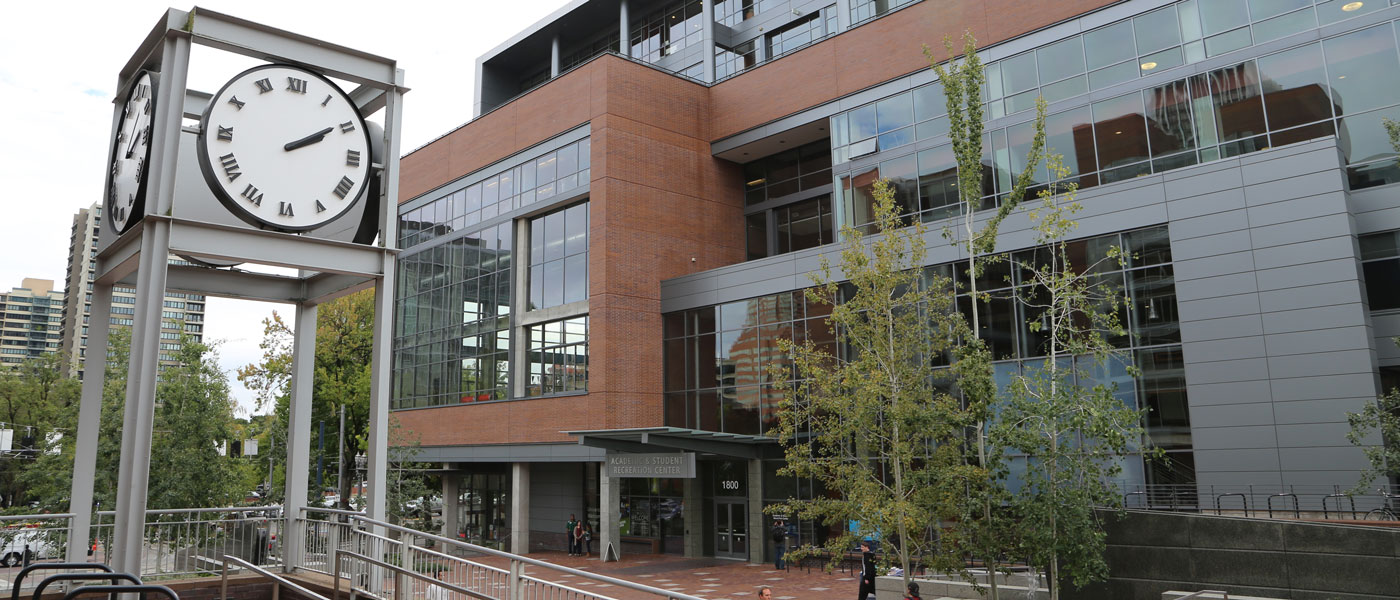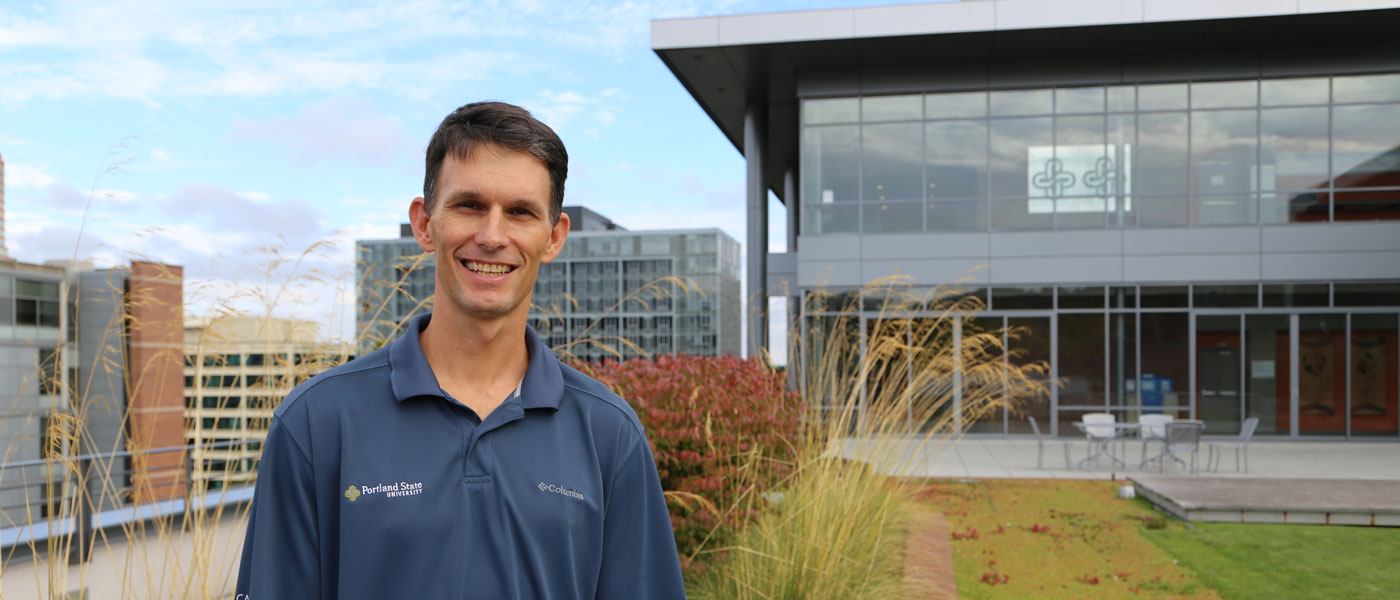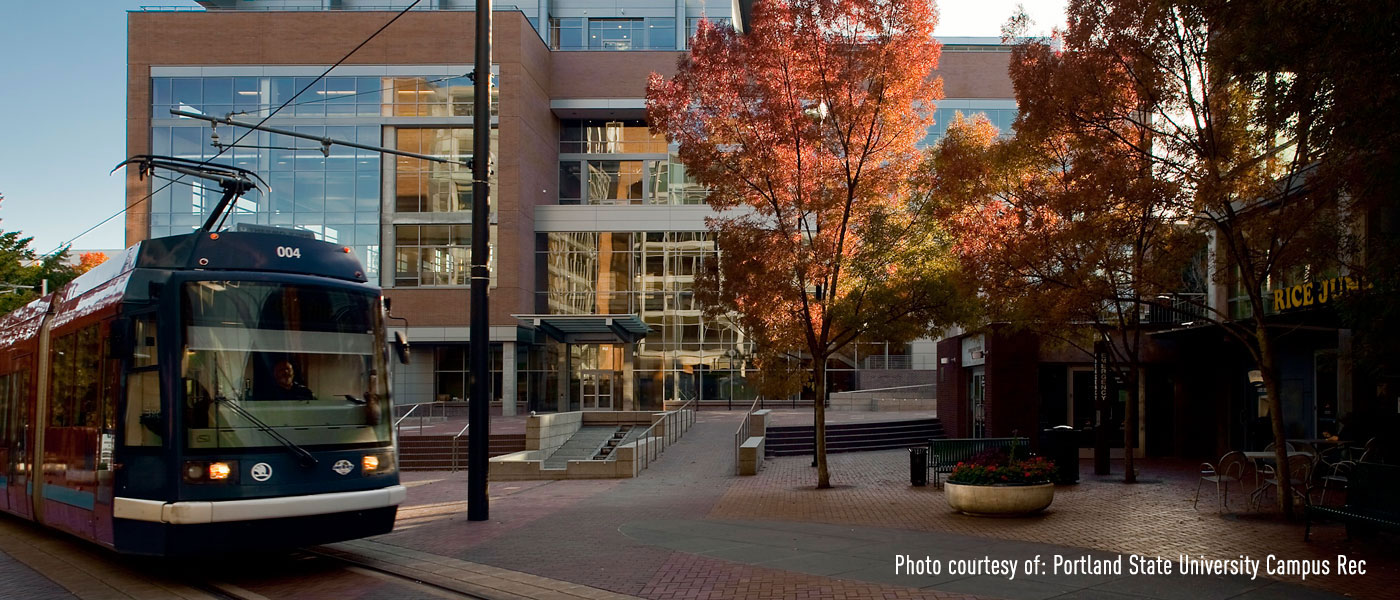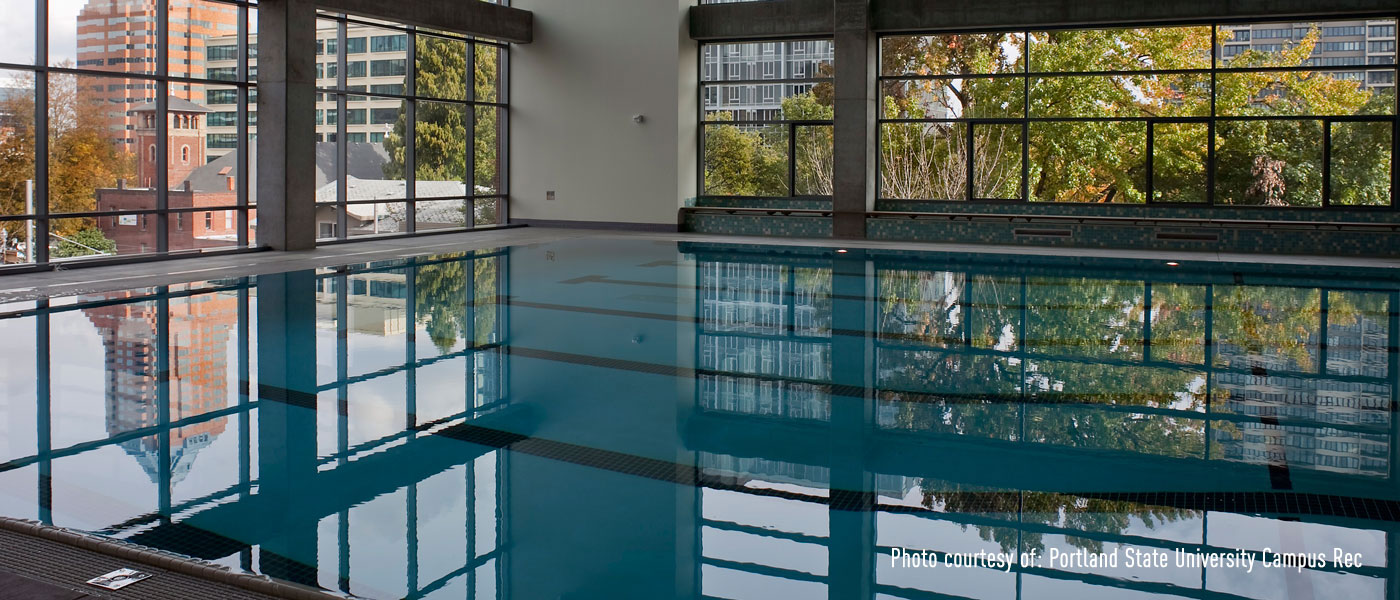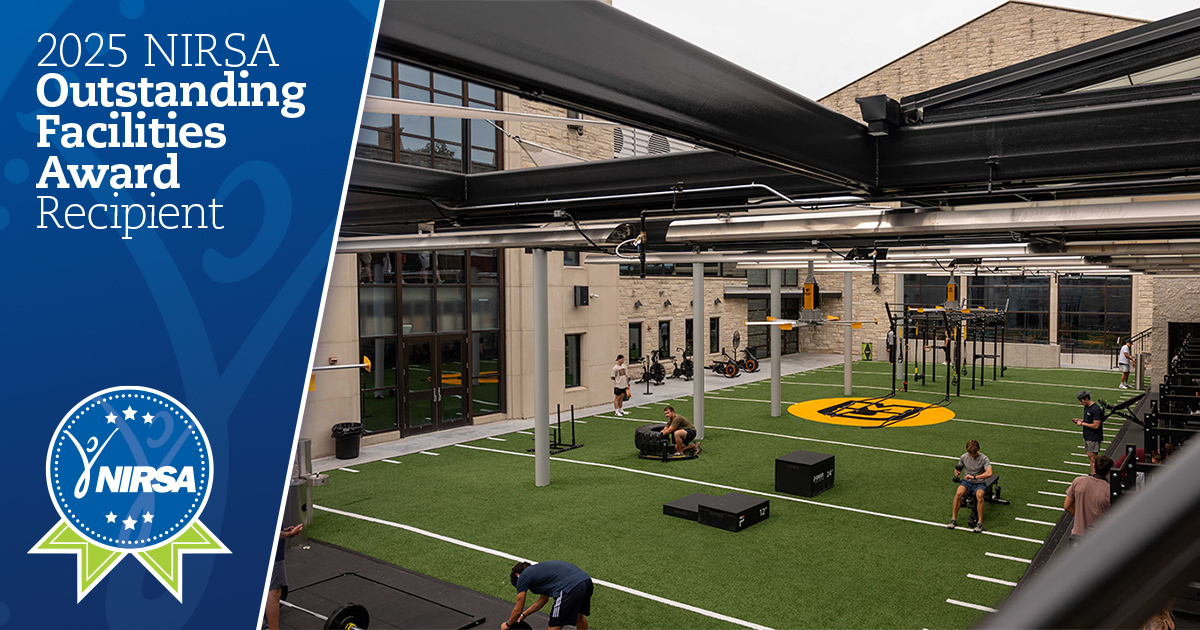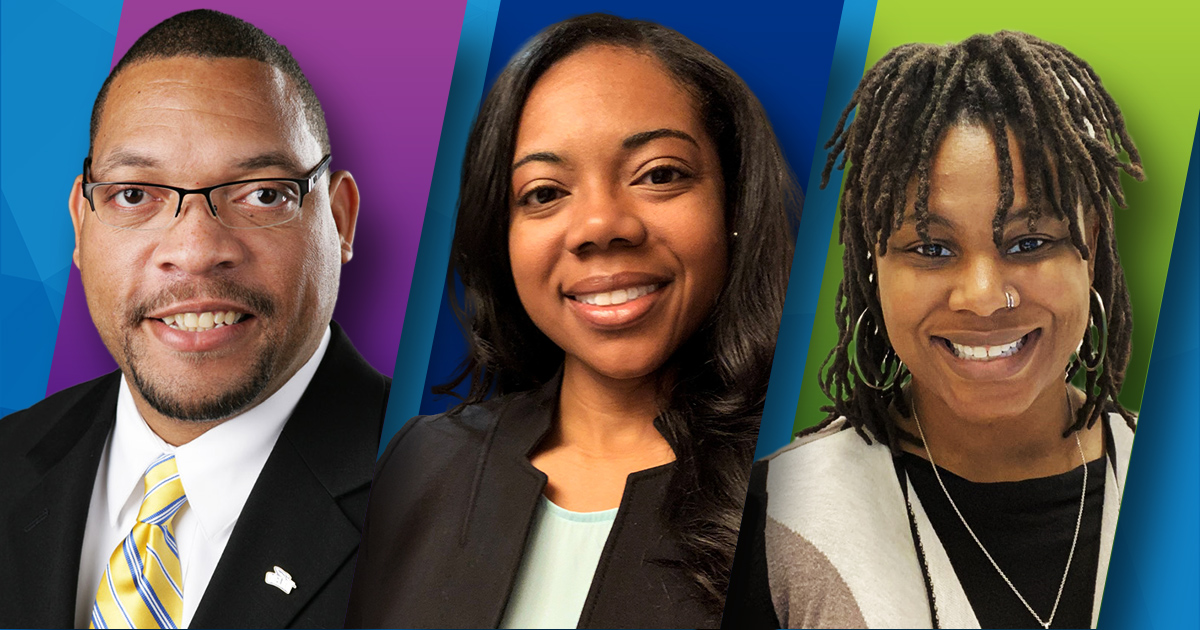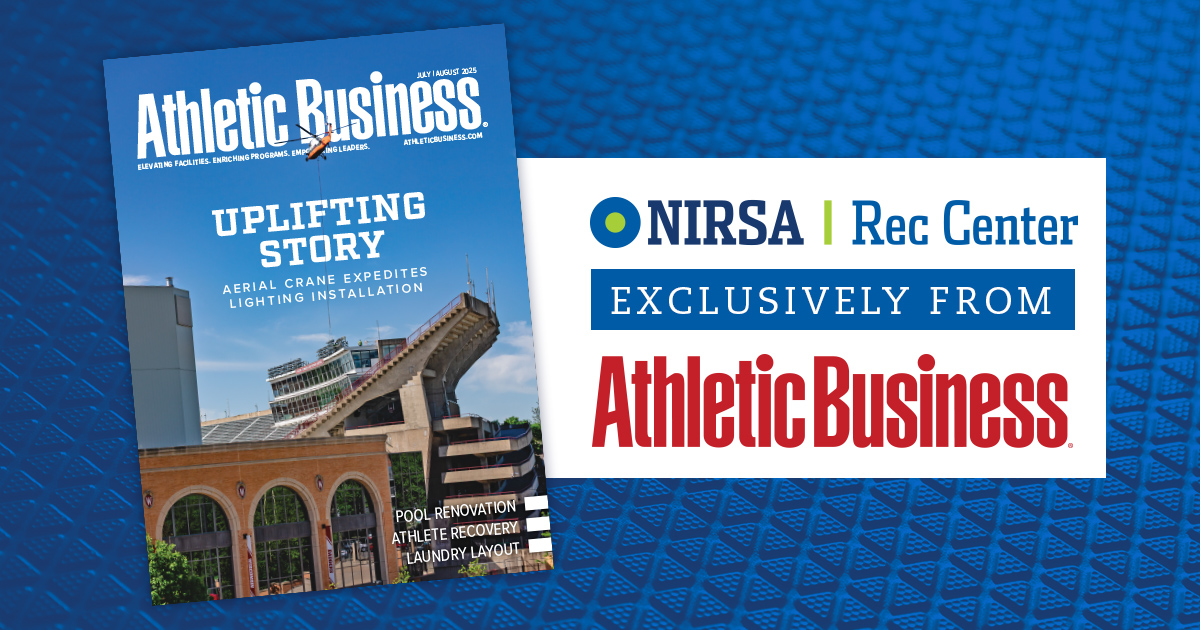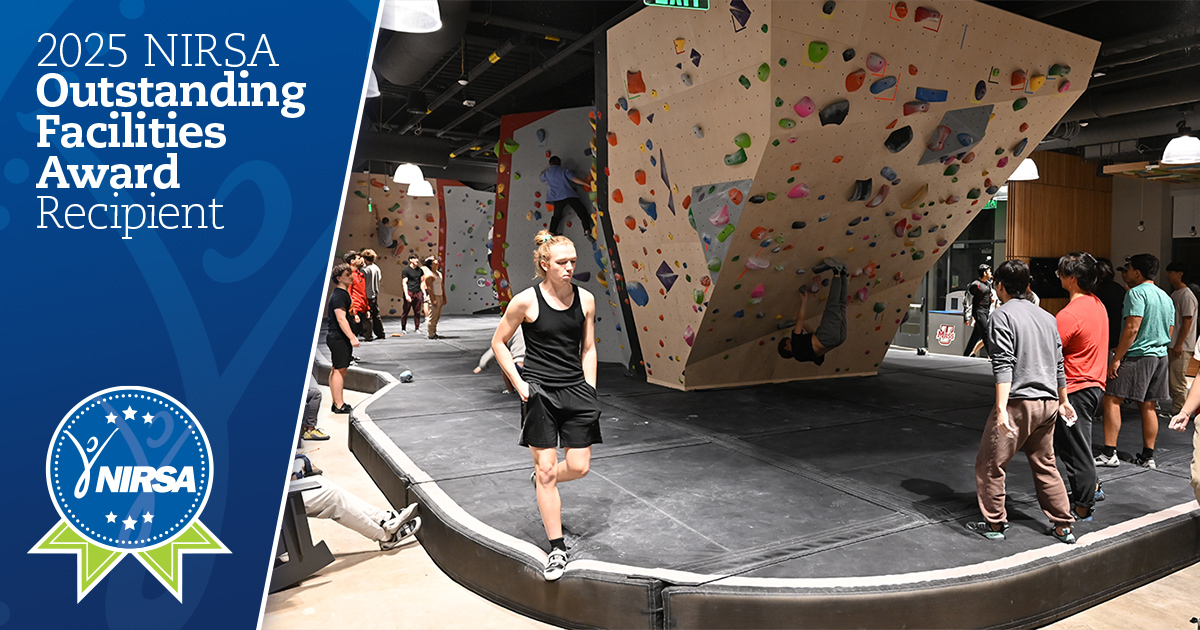When Alex Accetta was recruited by Portland State University, it was to work with academic and arts groups, and a small program called student recreation. He’d been working for a while in student affairs—admissions at Willamette Law School, student activities at Marist College, and policy analysis at the Institute for Higher Education among other positions—but when he arrived at PSU, it was actually with the ambition of getting involved in the outdoor programs field. Fast forward 14 years, and he is now the Executive Director of Campus Recreation and Student Union Services at Portland State—a new position he received after 13 years leading the recreation programs.
Alex has been involved with PSU’s Student Rec Center since the referendum to have it built initially passed. “I was incredibly lucky to get to build PSU’s rec program the way that I wanted to,” he explains. “I had no role models on our campus and so I tried to pick and choose from what I thought were the best programs out there.” For Alex, this meant drawing inspiration from Kathleen Hatch‘s program at Washington State University, Tom Kirch’s at Oregon State University, and Moe McGonagle’s at DePaul University. He took advantage of a “rare opportunity to apply these different ways of going about our profession” to one program.
 It was in the process of helping to build the rec program at PSU that Alex was introduced to NIRSA. While his first NIRA event was the 2002 NIRSA Annual Conference & Recreational Sports Expo in San Antonio, Texas, his first real interaction with the Association came from flipping through a copy of the NIRSA Recreational Sports Directory (a phone directory of campus recreation departments and professionals)—which is now available to all members online. He quickly spotted that Oregon State had a large number of NIRSA members, and so, he explains, when “I needed some help, I picked up the phone and called the guy at the top.” That guy turned out to be NIRSA Past President and NIRSA Honor Award recipient Tom Kirch. “Tom was so gracious with his time and answered all my questions and in many ways became a mentor for me,” says Alex. “That graciousness is what stood out to me and continues to do so to this day.”
It was in the process of helping to build the rec program at PSU that Alex was introduced to NIRSA. While his first NIRA event was the 2002 NIRSA Annual Conference & Recreational Sports Expo in San Antonio, Texas, his first real interaction with the Association came from flipping through a copy of the NIRSA Recreational Sports Directory (a phone directory of campus recreation departments and professionals)—which is now available to all members online. He quickly spotted that Oregon State had a large number of NIRSA members, and so, he explains, when “I needed some help, I picked up the phone and called the guy at the top.” That guy turned out to be NIRSA Past President and NIRSA Honor Award recipient Tom Kirch. “Tom was so gracious with his time and answered all my questions and in many ways became a mentor for me,” says Alex. “That graciousness is what stood out to me and continues to do so to this day.”
Alex is quick to point out that this spirit of generosity and graciousness are also hallmarks of NIRSA’s overall membership. “I was building a program from scratch and everybody I called—or when I posted email requests—would help me out. I was sent training manuals, budget models, policy books—anything I asked for. And that went on for about my first five years as I soaked it all in and established our program at Portland State.” Eventually, Alex “knew it was time to get involved and give back.” So he signed up to volunteer, and has quickly risen among the ranks of NIRSA members who are true leaders in the profession. Among his numerous volunteer commitments, he’s served on NIRSA’s Ethics Committee, chaired the William Wasson Student Awards Committee, spent three years as the at-large member of the NIRSA Board of Directors, and was the first Chair of NIRSA’s Strategic Values Commissions Steering Committee. He currently sits on the Global Perspectives Commission.
Often celebrated as one of the Association’s true role models himself, Tom Kirch identifies Alex as “one of our profession’s and Association’s most effective visionary and thought leaders. He has built an outstanding and inventive program at Portland State University and models for the rest of us all those elements he finds most important: innovation, creativity, compassion, inclusion, fairness, and fun.”
 The truth in Tom’s words is obvious when you hear Alex say, “Ultimately, I think rec centers are these amazing tools to challenge ourselves in so many more ways than just the physical ways—I love mixing all of these different perspectives together into a crazy tapestry!” Tom goes on to say that Alex is “what the leaders of the future will need to be.” He’s a person who “has faith in people and their contributions, who has hope for the possibilities of the future, and trusts in the processes of innovation and creativity.”
The truth in Tom’s words is obvious when you hear Alex say, “Ultimately, I think rec centers are these amazing tools to challenge ourselves in so many more ways than just the physical ways—I love mixing all of these different perspectives together into a crazy tapestry!” Tom goes on to say that Alex is “what the leaders of the future will need to be.” He’s a person who “has faith in people and their contributions, who has hope for the possibilities of the future, and trusts in the processes of innovation and creativity.”
That trust in innovation has been a hallmark of PSU’s recreational programming from the beginning. Just one example of PSU’s creative programming is the Artist-in-Residence program, which took place for the first time last year. The rec center “had the good fortune to work with Harrell Fletcher, a nationally-famous social practice artist,” to bring art—opera singers, a jazz band, life drawings—into the rec center. While “most people seemed to get joy out of the projects, there were certainly some that absolutely hated it,” Alex admits. “People were pretty passionate with their opinions about what art is, where it should or should not be, or if we should or should not be spending money on it. And in many ways, that was part of the process and part of why we did it.”
The rec program has also been involved with the You Can Play Project in support of the LGBTQ community. Supporting that community has been very important to Alex and he’s made sure that the rec center does what it can to be an ally. The Student Rec Center has gender-neutral restrooms, private changing areas in locker rooms, there are identity stickers on nametags, trainings on gender pronouns take place, it sponsors multiple activities during Queer Pride Month, and it works hard to foster a supportive work-environment for LGBTQ students and staff.
Portland State also has an incredible Inclusive Rec program, which owes a huge debt to Program Coordinator Jen Armbruster—who is also a six-time Paralympian in goalball—and Associate Director of Programs Jenny Welnick. They’ve “really changed a lot of people’s perceptions of what it means to be inclusive,” says Alex. They’re helping more and more people see that “everybody—from people with physical disabilities to those with weight challenges—can find a place in our rec center.” The rec center actually hosted the first collegiate goalball tournament last year and will be sponsoring its own goalball team in the upcoming 2015-2016 year.
When asked what about Alex stands out to her, Jenny says that “Alex truly cares about the people around him. He strives to make things better, to help create a more positive and enriching environment. He has truly made a difference in the lives of many students, faculty, and staff at Portland State and throughout NIRSA.” Jen Armbruster adds that Alex “wants everyone to find a home in our rec center and to be included.” His commitment to inclusivity is never up for debate. “Our Inclusive Rec program has some of its own programming,” she says, “but the entire department has embraced this and is so welcoming of all of our student body. This is possible because of Alex’s leadership and commitment in this area.”
Inclusion is such an important part of PSU’s rec center that “a lot of regular users don’t even realize that we do unique things,” says Alex. “It’s become a part of our fabric to have a couple of dogs in the building, or wheelchair users, or equipment that’s specialized. I think our student staff take a lot of pride in being able to help people and in being able to talk about disability in a way that is informed and inclusive.”
PSU’s Student Rec Center has been at the forefront of inclusive programming for years now, though Alex is the first to admit that schools across the country are catching up quickly; trans-friendly changing rooms, for example, were once unusual and have since become fairly commonplace. And so the challenge to keep innovating is one that Alex and his staff are more than ready for. “We saw the need for inclusive rec a long time ago and now that we have that moving,” says Alex, ‘we are looking at the next horizon, at how we develop staff to integrate a global perspective. With the changing demographics of the world and of higher education, how we interact with international students, and how we learn to be more globally-minded, is going to be important.” He believes that domestic students “need to learn about what’s going in the world even more than they already do.”
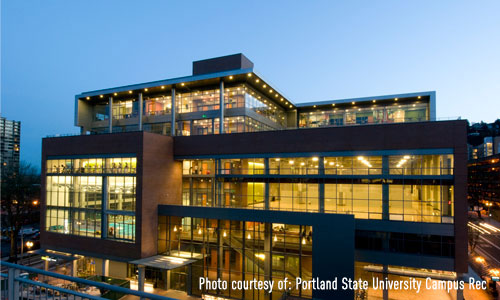 For Alex, collegiate recreation is not just about physical activity, health, and fitness. He doesn’t discount the value of these things at all; he just believes that recreation is part of a much bigger picture. “Growing up, I was a very competitive runner and I hated that most people thought of me as only ‘Alex the runner,’” he explains. “So I started on a mission to demonstrate that athletes are usually much, much more than just the sport they excel in. Often they are good students, care about the world, and want to do good for their communities.” This perspective is why his staff sees his focus as being heavily on social justice and environmental issues.
For Alex, collegiate recreation is not just about physical activity, health, and fitness. He doesn’t discount the value of these things at all; he just believes that recreation is part of a much bigger picture. “Growing up, I was a very competitive runner and I hated that most people thought of me as only ‘Alex the runner,’” he explains. “So I started on a mission to demonstrate that athletes are usually much, much more than just the sport they excel in. Often they are good students, care about the world, and want to do good for their communities.” This perspective is why his staff sees his focus as being heavily on social justice and environmental issues.
While the term social justice is still new to Alex, he readily admits that he knew from the beginning that with the new PSU Student Rec Center he had “a unique opportunity to create a space from scratch that was inclusive from the outset.” He’s since “realized that we are really just beginning to learn about the ripple effect we can make in helping develop at least small steps towards greater equity—and we take that responsibility to heart. I view our work as a tool to do good. And while certainly health and fun are paramount to doing good,” he says, “I think there is a great opportunity to take those two paradigms and apply them in ways that have a bigger impact.”
This belief in having a bigger impact is why environmental concerns have been at the heart of Alex’s continuous commitment to recreation. He believes there’s an innate connection between “our rec centers and taking care of the spaces around us.” He came to this realization while on a run “in a beautiful Oregon forest outside of Monmouth, Oregon. All of a sudden, I popped out into a clear cut—all roots and stumps of a once glorious forest—and it shocked me deeply,” he says. “From that moment on I kept playing with the idea that there was an intrinsic link between being healthy and taking care of the environment. Those two things have really kept me plugging at this career.”
Whether it’s through creative recreation programs or through volunteering for NIRSA, Alex is passionate about serving others to make a difference in the world. “There is always so much great work going on” in NIRSA, he explains. “I love the challenge and energy that comes from that—they’re what keep me engaged. I’ve learned way more from NIRSA than I’ll ever be able to give.” He encourages young NIRSA members to also commit to getting involved, and offers them the following advice: “You have to show up at the table and then say something—express your opinion.” After all, he’s quick to remind young members, “Typically, to lead you have to say something.”
Alex deeply believes that he has “a great deal of responsibility to do more with students’ money than just bring them fun and games”—even if that’s all they think they’re paying for. He views the Portland State University Student Rec Center as a way to “change the paradigm about what it means to be healthy, or what it means to be comfortable in your body, or how we have a unique relationship to the environment because of our activities. It’s a pretty cool tool to use to help students and our campuses make positive change.”
For more information about PSU’s Campus Recreation and Student Union Services, please contact Executive Director of Campus Recreation and Student Union Services Alex Accetta. To learn more about having your story featured on the NIRSA website, email NIRSA Communications Coordinator Nazifa Islam.
Nazifa Islam was previously the Communications Coordinator at NIRSA.



